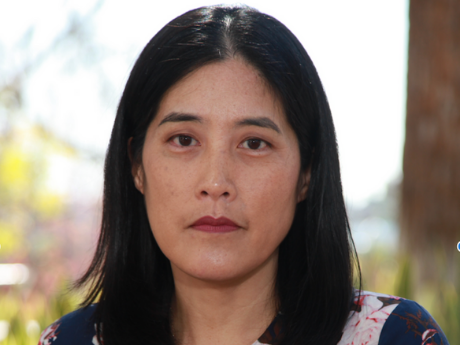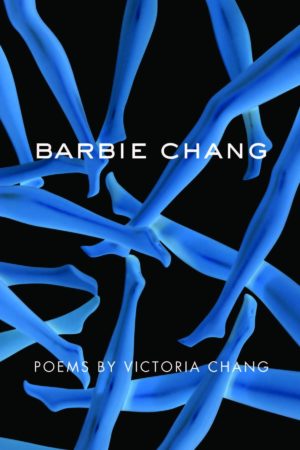In Their Own Words
Victoria Chang on “These Men Can Be Collected”

These Men Can Be Collected
These men can be collected in a cup
or a shovel but Barbie
Chang cannot pick each out except
by the handful they
each dress better have nice sweaters
come with tags that say
Do Not Remove they move everywhere
they are a catalog that
keeps coming in the mail each only
slightly different from
the last this manuscript is named
Man. 4 moon sounds
like man the shadow on her desk is
not hers her light
is her heart that hurts from igniting the
microphone she talks
into an ear but the ear is not an ear she
can whisper into
it is her own ear she has never seen
except backwards
the words keep coming from Mr. Darcy's
mouth and she keeps
waiting each month for him to go back
into the book but
how does she turn her back if there is
no one watching her
From Barbie Chang (Copper Canyon Press, 2017). All rights reserved. Reprinted with the permission of the author.
On "These Men Can Be Collected"
I had a difficult time selecting a poem from Barbie Chang because I often have trouble seeing my own work objectively so I picked a poem at random called These Men Can Be Collected. I wrote this poem a long time ago, after I had my first child. The act of having a child was traumatizing, but the years after were even more traumatizing. I don't think I ever recovered fully. I think having children impacts people in many different ways and for me, it was/is very difficult emotionally. At the time, I felt very disconnected, yet I lived in the most vivid imaginary world that I had ever lived in. In this imaginary world, I became obsessed with Mr. Darcy, as if he were a real person in my life. I would play through and imagine scenarios as if I were really living them (I also did this with Barbie dolls as a child to cope with the reality of being Chinese American in the Midwest/Michigan). Now looking back at it, I wonder too if the aftermath of hormones and childbirth impacted my emotional state and whether I was suffering from postpartum depression and anxiety.
This poem first emerged in first person. It was only many years later, that the phrase Barbie Chang popped into my head and opened up new possibilities for the manuscript I had been working on. I combed through an older manuscript and found this poem and others and changed everything to third person so I could write more freely about experiences larger than my own. I didn't think of it as an erasure of the self, but as an expansion of the self.
This poem, like the poems from my prior book, The Boss, are somewhat sound driven because I enjoy playing with language to allow language to propel imagination versus the mind to propel imagination. I also didn't use any punctuation, like in The Boss, because I like the double meanings that can emerge accidentally because of no punctuation, as well as the speed of the line for these particular poems that felt like they wanted to run away from me.
It's interesting too because this character, Barbie Chang, lives in a world where she is invisible but so badly wants to be visible, but the world that she wants to be visible in isn't that respectful towards women and isn't all that great. So, Barbie Chang remains in a state of in-betweeness. And the name Barbie Chang has that ambivalence—on the one hand, her name is "Barbie"—the iconic perfect white American woman who is not only fully accepted by all but coveted; on the other hand, her last name is "Chang" and she is Chinese American and it's that second part of her name that can limit her existence in America, but never limit her imagination.



